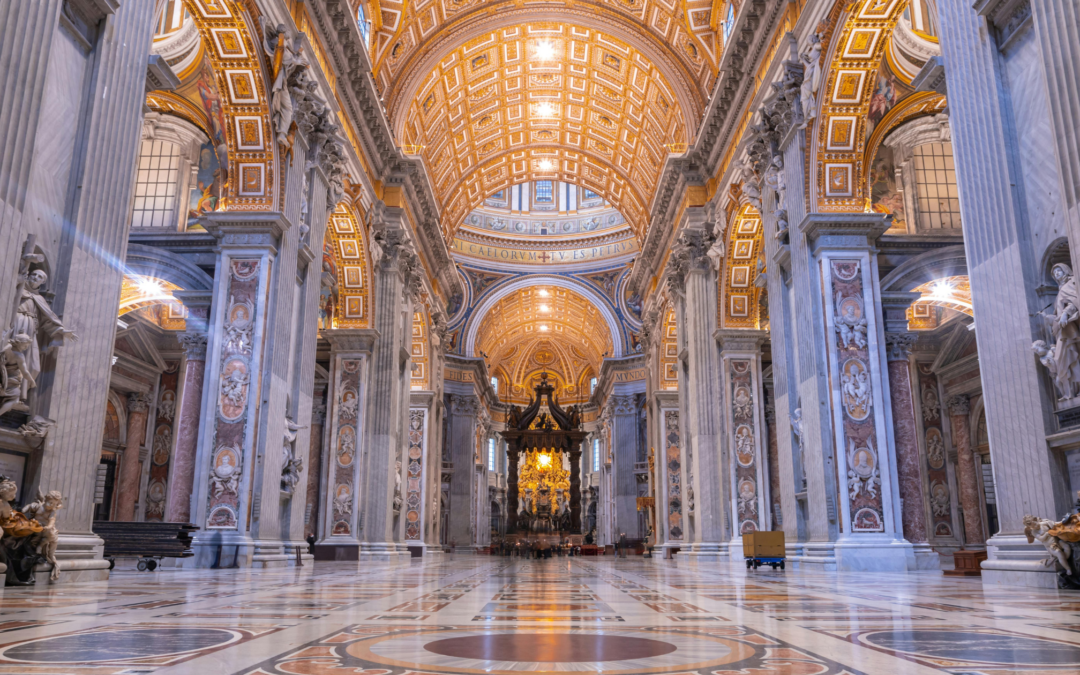Understanding the Second Vatican Council: High School Course
In 1962, Pope John XXIII convened the Second Vatican Council, which was undoubtedly the most monumental event in Catholic history during the latter 20th century. Sitting in four sessions from 1962 to 1965, the decrees and implementation of the Second Vatican Council would touch on every aspect of the Church’s life and mission. It is simply impossible to study modern Church history or understand contemporary Catholicism without reference to Vatican II.
This can be tricky, however. As with any modern event, there are many different takes on the Second Vatican Council—what was the intention of the Council Fathers, how are we to understand some of the Council’s more controversial documents, and why was the implementation of the Council considered a mess? Catholics remain profoundly divided on these issues, and Vatican II can be a contentious topic within Catholic circles.
Given the controversy, how can we educate our children about this important event in Church history? Is there a way to give kids the pertinent facts about the Vatican II era without getting lost in polemics? If you’re looking for a concise, “just the facts” approach to Vatican II, I’d like to humbly recommend my recorded high school summer bootcamp course, Understanding the Second Vatican Council.
Course Information
This four-session course is meant to give students an understanding of the Second Vatican Council through a study of the Council’s history, documents, and aftermath. In this course, we cover:
The Lead-Up to the Council: The state of the Church in the early 20th century, the pontificate of Pope John XXIII, and the pope’s rationale in summoning the Second Vatican Council.
The Calling of the Council: How the Second Vatican Council was organized, the tumultuous first session, and the schemas proposed for discussion by the Council Fathers, the passing of Pope John, and the election of Paul VI.
The Church and the World: The two most important conciliar documents were arguably Lumen Gentium and Gaudium et Spes, both of which dealt with the Church, the first in relation to itself, the second in its relation to the world. We examine these documents and review their core ideas.
Scripture, Interreligious Dialogue, and Liturgy: Some of the most contentious issues of Vatican II relate to its statements on Sacred Scripture, the liturgy, and the Church’s relationship with non-Christian religions. We look at Notra Aetete, Dei Verbum, and Sacrosanctum Concilium in studying these questions.
The Aftermath of the Council: We also discuss the decade after the Council, especially Humanae Vitae, the implementation of the Novus Ordo Missae, and the chaotic years of the 1970s with a focus on understanding disputes about the Council’s implementation.
Unresolved Issues: Many of the tensions of the Vatican II era are still unresolved today. We discuss various places in the Church’s life where the legacy of Vatican II is still contested.
Homework consists of short-answer questions with an answer key provided for self-grading or parent grading. As this is a shorter bootcamp course, there is no assigned reading, but I offer some suggestions for texts for students who want to get a deep dive into the subject matter. We also read snippets from the Vatican II documents themselves (students are encouraged to read the Vatican II documents in their entirety for greater understanding).
Parents sometimes express concern that material on Vatican II can contain an implicit bias, either by denying the legitimacy of the Council or else elevating it into some kind of super-dogma that trumps the previous 19 centuries of Church history. This course focuses on the indisputable basics. We certainly do not avoid the controversial subjects (such as the liturgical reform), but they are presented factually without delving into the realm of opinion: What happened? When did it happen? What was the stated rationale? What were the effects?
You can review the course details for Understanding the Second Vatican Council on its Caravel page.






